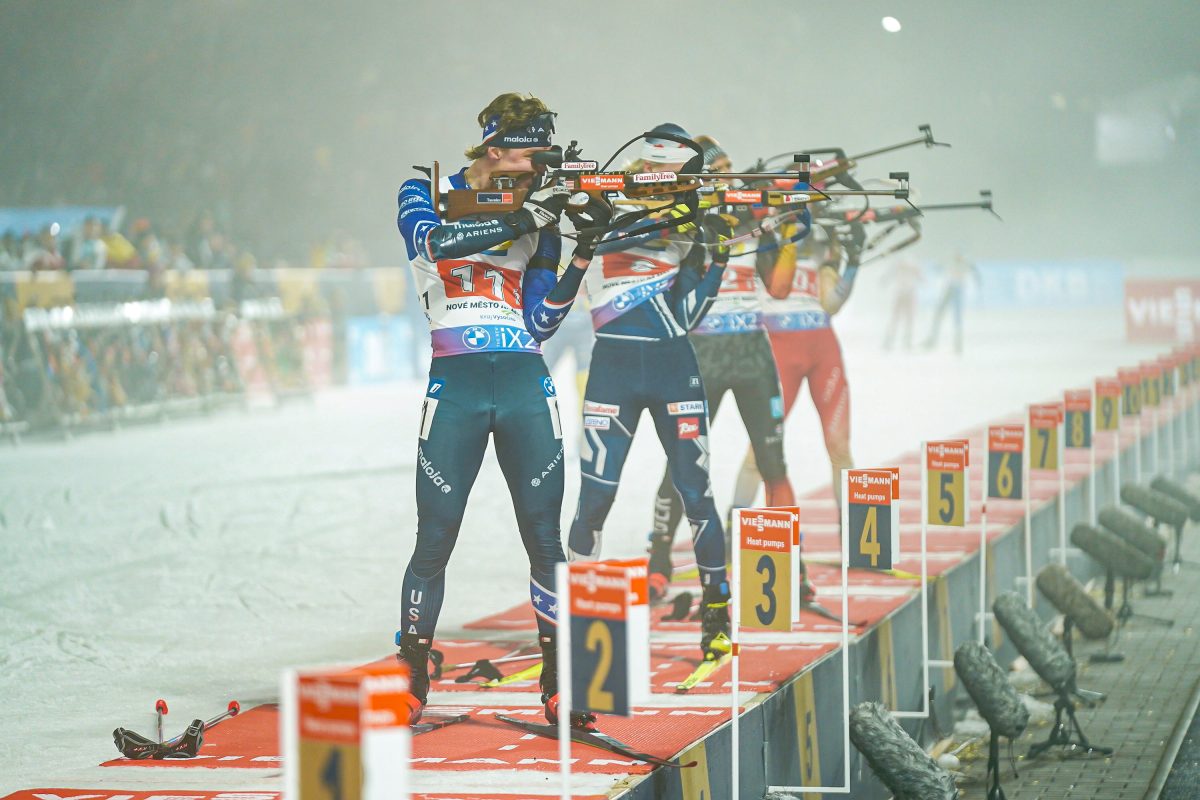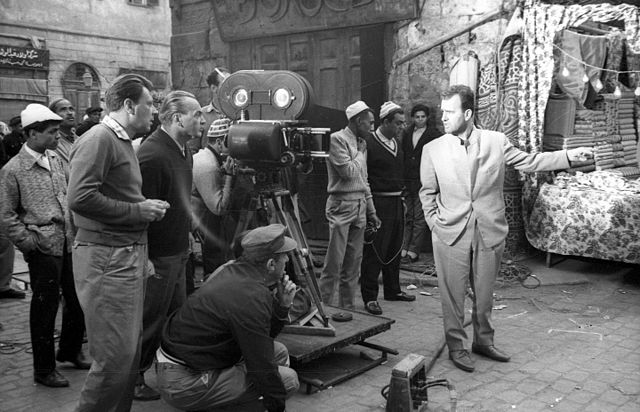
The Court of Arbitration for Sport (CAS) recently reached a decision which could drastically change the competitive landscape at the Sochi Olympics.
“I can not describe in words how happy I will be able to defend the honor of Russia in Sochi,” Russian skier Natalia Matveeva told skisport.ru.
Matveeva has stood on the World Cup podium ten times, and recently finished a two-year doping ban after testing positive for EPO. But even though she had completed her penalty, until last week Matveeva believed that she would be unable to represent her country at the 2014 Olympic Games on home turf.
That’s because in 2008, the International Olympic Committee (IOC) amended Rule 45, which defines Olympic eligibility, to state that the Games weren’t open to athletes who had doped.
“Any person who has been sanctioned with a suspension of more than six months by any antidoping organization for any violation of any anti‐doping regulations may not participate, in any capacity, in the next edition of the Games of the Olympiad and of the Olympic Winter Games following the date of expiry of such suspension,” the rule read.
CAS, however, deemed the rule “unenforceable” on October 4th – and as a result, Matveeva and several other athletes will be able to return to Olympic competition after all.
Headaches and Frustration
Back in 2008, the IOC explained its new rule by saying that it encouraged clean competition and created an added incentive to avoid using performance-enhancing drugs.
But it created a confusing situation for athletes returning from doping bans. While they could return to their national teams and compete at World Cups, World Championships, and almost every other race or match at sport’s highest levels, when it came time for their countries to name the Olympic squads, they would be left off.
And the Olympics are a pretty big deal.
“It is clear that the emphasis in the country is on the Olympics in Sochi,” former world champion Dimitry Yaroshenko told skisport.ru in an interview earlier this month.
The Russian biathlete, who is returning from a two-year doping ban, wondered if the rule would affect his ability to receive funding and coaching for even longer than the actual ban.
“On the one hand, if I have the same results as before this winter, I will need a team,” Yaroshenko said. “But if I will have no opportunity to represent Russia at the Games in 2014, the question arises: how is it worthwhile to invest in the national team biathletes who cannot compete in these home Olympics?”
It is believed that none of the athletes shooting for the 2010 Olympics in Vancouver were affected by the IOC rule; they were either still serving out their doping bans, or had been banned before the new rule went into effect. But with the 2012 Olympics in London looming, athletes and national governing bodies alike were scratching their heads.
For the national governing bodies, the rule created a legal catch-22. The American Arbitration Association ruled in the case of LaShawn Merritt, a U.S. sprinter and former 400 meter World Champion, that U.S.A. Track and Field was actually legally obligated to nominate Merritt to their Olympic squad if he met the qualifying criteria. And yet if the United States Olympic Committee (USOC) did so, the IOC would reject the nomination.
While none of the governing bodies portrayed themselves as eager to add cheating athletes to their rosters, they did want clarity. The World Anti-Doping Code actually states that an athlete cannot be separately sanctioned by more than one organization for a single doping violation, but the governing bodies believed they were being asked to do just that.
When the USOC raised this concern, the IOC fired back that its rule was merely an extension of selection criteria, not a second disciplinary action.
After months of bickering over Merritt’s Olympic future, the two organizations finally agreed to submit the case to the Court of Arbitration for Sport. The USOC was joined by the U.S. Anti-Doping Agency and organizations from Britain, Denmark, Norway, New Zealand, Japan, and South Africa ,who were similarly perplexed about whether and how to apply the new language in Rule 45.
A Change in the Game
In the CAS hearing, the IOC defended itself by saying that the new rule was all part of the Olympic spirit.
“[The IOC] has a wide social mission, which transcends the governance and administration of sport and aims to educate the youth of the world,” the IOC argued according to the hearing minutes, which are available from the CAS website.
“The objective of the IOC Regulation is to protect the values of the Olympic movement and the Olympic Games from the threat and scourge of doping and to encourage potential participants in the Olympic Games to adhere strictly to the applicable anti-doping programmes.”
The organization admitted that it had no right to sanction athletes for doping offenses. But while the IOC argued again and again that the new rule was a selection criteria rather than a sanction, the three-member CAS panel did not agree.
“The IOC Executive Board’s June 27, 2008 decision prohibiting athletes who have been suspended for more than six months for an anti-doping rule violation from participating in the next Olympic Games following the expiration of their suspension is invalid and unenforceable,” the panel concluded in their ruling.
They noted first that the rule did not comply with the World Anti-Doping Code, which states that no other organization can make rules which change the length of a doping ban. Then the panel pointed out that the IOC adopted the Code as one of its statutes, and that its subsequent contradiction made the new rule unenforceable.
Most administrators breathed a sigh of relief.
“This decision does not diminish our commitment to the fight against doping, but rather ensures that athletes and National Olympic Committees have certainty as they prepare for London,” USOC chief executive Scott Blackmun told Reuters.
The IOC, however, was not pleased with the ruling.
“We were disappointed of course because the rule was meant to protect the clean athletes,” IOC President Jacques Rogge said in a statement. “So we’re a little surprised, disappointed.”
The decision also means that several other rules may be deemed unenforceable in the future. For instance, the British Olympic Association currently enforces a lifetime ban on athletes who have been caught doping; although they can return to competition, they can never again represent Great Britain at the Olympics.
Who Can Compete In Sochi?
The IOC will have to revise its rules in response to the ruling, and a number of skiers and biathletes are among those who woke up to find they were actually eligible for Sochi. Most are Russian, which made the realization particularly sweet.
“This happens once in a lifetime, having the Olympics are at home,” Matveeva said. “Not every athlete can take advantage of this opportunity during his sporting career.”
Yaroshenko was likewise thrilled by the decision, which he had previously said he did not expect.
“I have been longing for this decision,” he said. “I even lit a candle in church and asked the priest to pray for us. It’s great that I can compete.”
The Russian recently won three gold medals at Summer Biathlon World Championships in the Czech Republic, and is clearly regaining his previous form.
Another racer who will be returning to competition is Yevgeny Dementiev. The 2006 Olympic gold medalist in the 30 k pursuit reportedly decided six months after his ban that he would return to elite racing once it was complete. While he hasn’t spoken to the press since the CAS decision, he said in an interview on the Russian Ski Federation website in August that he hoped that CAS would rule in the Americans’ favor.
But neither Dementiev, Matveeva nor Yaroshenko are to be on the line in Sochi. First, they have to convince their federations that they are not only competing clean, but skiing fast.
“Now the main thing is to earn a place on the team in the Olympic selection process,” Matveeva said.
While the trio, along with former world champion biathlete Etkaterina Iourieva have been trying – with varying degrees of success – to regain their spots on Russia’s national teams, other athletes who have completed their bans have been less visible. Olympic gold medalist Julia Tchepalova, for instance, retired from competition after she was banned for using EPO. But with three years before the Olympics, Tchepalova could change her mind.
Regardless, the Russian ranks just got deeper, meaning that the fight for start rights at the Olympics will be even more fierce and the country will be more likely to field a successful team.
Is Another Revision Coming?
What neither Matveeva nor Yaroshenko mention is that it is still possible that they will be excluded from the Sochi races.
In its ruling, the CAS panel did not actually disagree with the IOC’s desire to keep convicted dopers out of the Olympics; they merely decided that the organization’s chosen mechanism was unenforceable.
In fact, CAS went so far as to suggest a better way for the IOC to meet its objectives.
“The CAS Panel also emphasized that if the IOC wanted to exclude athletes who have been sanctioned for doping from the Olympic Games, it could propose an amendment to the World Anti-Doping Code, which would allow other Signatories to consider such an amendment and possibly to adopt it,” CAS said in a press release. “If so, no ne bis in idem issue (prohibition against double jeopardy) would be raised, as the ineligibility would be part of a single sanction.”
Rogge and the IOC have vowed to use this strategy to try to reinstate the rule, and the World Anti-Doping Agency said on its website that it would consider adding the revision when it reviews its Code in 2012-13.
So while Merritt and his other summer competitors can represent their countries at the 2012 Olympics in London, winter athletes who don’t compete until 2014 may have to endure another emotional roller coaster before they find out if they will ultimately be able to call themselves Olympians.



